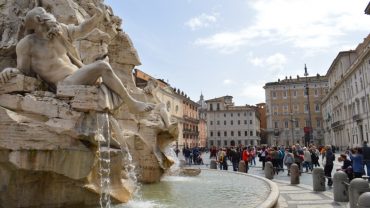During our round the world trip last year, we had the fortune of visiting both Hong Kong and Tokyo. Not surprisingly, we are in love with both cities and would return in a heart beat. Though both have that big city atmosphere that we enjoy, they differ immensely in what they offer otherwise. Read on for a great sum up of their respective differences![divider_10px]
When you start spending some time in Asia, you quickly realise every country, city and culture is unique. It’s one of the (many) reasons Asia is so special, but it makes it almost impossible when you are trying to decide where to go! Two major cities that deliver entirely different experiences are Tokyo and Hong Kong. The following is a comparison of both.
Culture and Experience
If you’re planning on booking any upcoming Tokyo city breaks you’re in for quite a treat as Tokyo is widely renowned as being Japan’s cultural centre. A mishmash of traditional arts, festivals, rituals and celebrations, Tokyo is a delight for all of the senses. Some of the distinctive Japanese customs include bringing a gift when invited somewhere, bowing to greet someone and not wearing shoes inside. Many Westerners consider the culture more reserved, but also incredibly refined, sophisticated and very intriguing.
In contrast, city breaks to Hong Kong are equally dynamic, but very different. It’s a case of East meets West, in terms of culture, traditions, beliefs and entertainment. It’s busy, loud and can be overwhelming. Hong Kong is over 93 per cent Chinese with the other seven per cent being a kaleidoscope of ethnicities, including British and Indians. Many of the Chinese concepts have remained i.e., modesty and family honour, as have many of the Chinese festivals and events, including Chinese New Year and the Mid-Autumn Festival. However, there is also a very powerful Western undercurrent. The result is an open-minded and somewhat liberal culture, seemingly much less reserved than that of Japan.
Attractions and Entertainment
In addition to its main tourist attractions, including various historic temples and buildings, beautiful gardens and incredible shopping, head to Tokyo for a taste of its traditional arts. These can vary from flower-arranging and pottery, to drama, puppet shows and storytelling. Other attractions include Tokyo’s array of celebrations including its three major festivals: Kanda Matsuri (May), Sannō Matsuri (June) and Fukagawa Matsuri (August). All three are extended celebrations that sometimes last up to a week, with parades, music, parties and performances.
When it comes to Hong Kong, sport is huge part of the culture, including table tennis, cycling, football, badminton, running and swimming. The Hong Kong Sevens, Hong Kong Marathon and Hong Kong Tennis Classic are three of the big highlights on the sporting calendar. Hong Kong has an equally dynamic events calendar with some of the biggest celebrations including Chinese New Year (January), Spring Lantern Festival (February), Dragon Boat Festival (June) and the Chung Yeung Festival (October). The city comes alive with costumes, music, food, religious rituals and ceremonies. And for the last 170 years Hong Kong has also celebrated the traditional Western events of Christmas, Easter and even Valentine’s Day — all carried out with a Chinese twist!
Cuisine
Tokyo cuisine consists of a regional take on traditional Japanese cuisine. It’s fresh, flavoursome and healthy. If you have a fondness for fine-dining, you will adore Tokyo. It’s home to some of the best dining establishments in the world — even out-rating Paris in terms of its number of restaurants with Michelin stars. Sushi, udon and miso are all staples with two regional specialties being Inago no tsukudani (soy-flavoured grasshopper), and Hōtō (miso soup with udon noodles and vegetables).
Hong Kong is widely considered the culinary capital of Asia, with influences from Cantonese, Japanese, South-East Asian, and Western cuisines due to its history as a former British colony. From street stalls and markets to internationally renowned five-star dining establishments, great food is found around every corner. Cantonese treats include dim sum, roast duck, snake soup and shark's fin, but you don’t have to look far for Italian, French, Thai, Indian or Malaysian food.
[divider_5px]About the Author: Janet Morris is a UK expat living in Tokyo. Although she misses home, she loves the vibrancy of her adopted continent.
Photo: http://www.123rf.com/photo_21058093_bunkyo-tokyo-japan-cityscape.html




Comment (0)